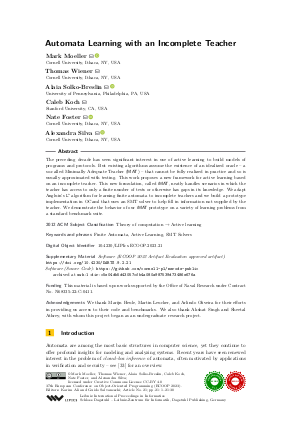LIPIcs.ECOOP.2023.21.pdf
- Filesize: 1.23 MB
- 30 pages

 Creative Commons Attribution 4.0 International license
Creative Commons Attribution 4.0 International license



















Feedback for Dagstuhl Publishing